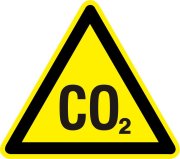Think of this as Volume 12, Number 26 of A-Clue.com, the online newsletter I've written since 1997. Enjoy.

Its name should be The Economic Recovery Act.
While every action of this Administration and Congress up until now has aimed to stanch some type of bleeding or cauterize some economic wound, this bill is meant to define and launch a new economy that can grow and restore American leadership.
The bill is hardly perfect, but it's not meant to be at this point. It's meant to pass. It's meant to act as a marker against which a future Senate bill might be measured. The final policy will mix what the House passes, what the Senate passes, and how the Administration interprets the law in implementing it.
What the bill is meant to do is equalize the cost of hydrocarbon and non-hydrocarbon energy, imposing a tax on the former that becomes a subsidy for the latter.
To those who argue that "the market" should be deciding our energy future, the truth is that our present energy system is based heavily on government subsidies and government action.
- Government-regulated monopolies directed capital to a few strong hands and built our utility grid.
- Government spending on roads subsidized auto travel at the expense of other forms.
- Government tax incentives like the oil depletion allowance gave the U.S. oil patch billions and encouraged production.
- Government war policy expanded demand, and foreign policy extended the power of our oil interests.
Our present system, in other words, rides on a sea of government spending, of tax policy, of regulation, and even of diplomacy all meant to encourage greater production and consumption of hydrocarbons.
We know this policy is unsustainable. Whether you see peak oil as hitting this year or in 40 years it's coming. Economic growth is already being held hostage to the speculation of the oil pits. The Earth is burning from our consumption of hydrocarbon fuel, and markets worldwide are screaming for alternatives.
The bill's "costs" are not the issue. This bill represents a sea change in incentives from government, away from hydrocarbons, toward solar and win, geothermal and hydrogen. The idea is to set a floor price under which new energy becomes profitable, and subsidize the infrastructure needed to get the new production to market.
That's expensive. The expense will be borne by removing incentives from an unsustainable market and assuring purchases of the new product. It will also be borne in subsidies for the new infrastructure.
This is no different than what happened during the oil century. What's different is that, for the first time, that industry's ox is being gored, and new industry is being encouraged.
There are a large collection of industries that will benefit from all this, creating jobs for millions of Americans just as the oilpatch created millions of jobs in the last century:
- Insulation and efficiency are the low-hanging fruit here. By raising the price of energy we create incentives for this area of the economy to grow.
- New infrastructure, an Enernet that can buy, sell and store power in a portable form, represent an enormous opportunity and an engineering challenge that can be exported.
- New supplies, and the technologies surrounding them, will be encouraged by the infrastructure, subsidized through cap and trade, and bring new opportunities to a generation of entrepreneurs.

So what? Energy markets have always ridden on government action, or inaction, aimed at encouraging certain classes of suppliers over others. The aim of cap and trade is to create incentives for scientists, engineers, and entrepreneurs to create new jobs and make the money that will get the economy moving in.
Cap and trade? No. Invest and grow. If the bill somehow dies, so too does hope for economic recovery.












I agree that it is very important this bill passes to set a marker for future improvement. That said, I hope the next step is to tighten up the agricultural exemption. I agree that small farms should be exempt, but small farms have never been the issue. Factory farms are a major contributor to greenhouse gases (and to foodborne illnesses). The truth is that cap and trap would destroy the business model of factory farming and while that will increase the cost of meat, it is overall a very good thing. I’m a big fan of cheap meat, too, but the hidden costs are just becoming too high.
I agree that it is very important this bill passes to set a marker for future improvement. That said, I hope the next step is to tighten up the agricultural exemption. I agree that small farms should be exempt, but small farms have never been the issue. Factory farms are a major contributor to greenhouse gases (and to foodborne illnesses). The truth is that cap and trap would destroy the business model of factory farming and while that will increase the cost of meat, it is overall a very good thing. I’m a big fan of cheap meat, too, but the hidden costs are just becoming too high.
I agree. But unless we pass something we can’t do anything. And it is going to be difficult to get anything through the Senate, as evidenced by the talkbacks I got when I broached the subject recently at Smartplanet.com, where I now maintain two blogs.
Dana
I agree. But unless we pass something we can’t do anything. And it is going to be difficult to get anything through the Senate, as evidenced by the talkbacks I got when I broached the subject recently at Smartplanet.com, where I now maintain two blogs.
Dana